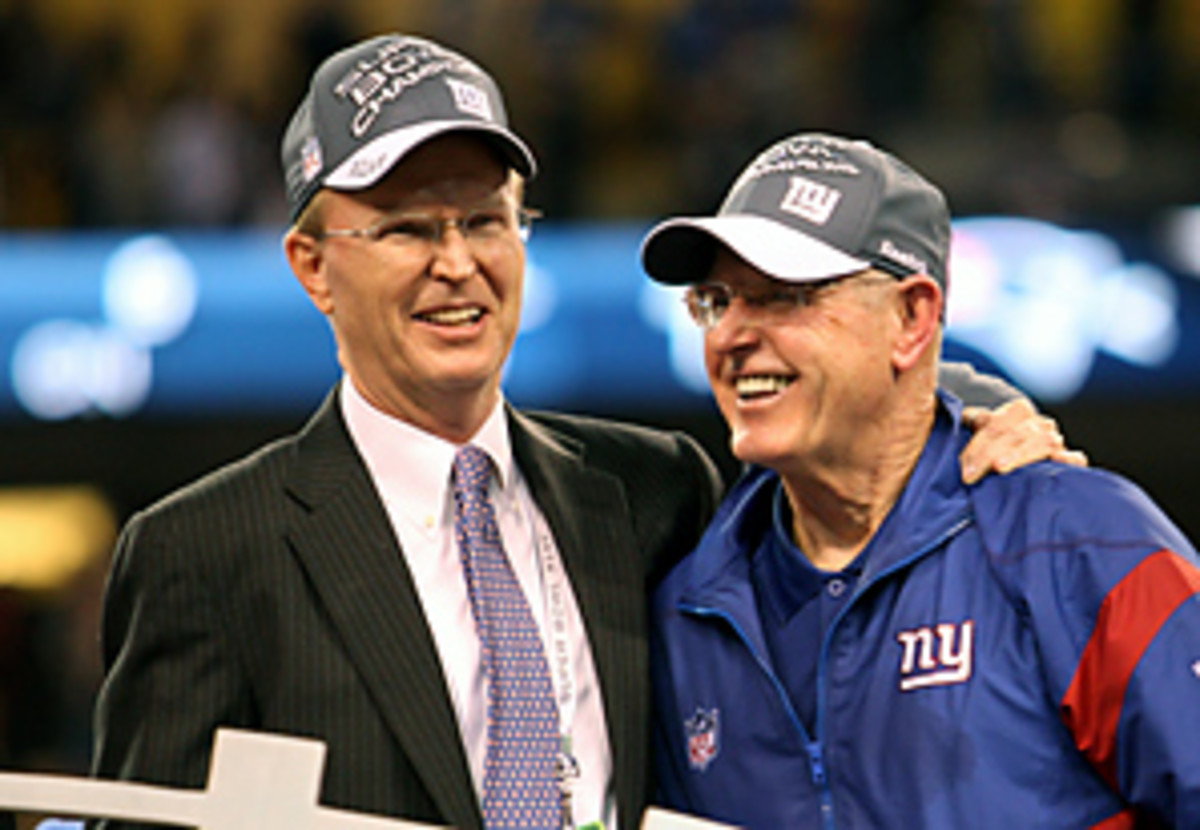Opinions on penalties for Redskins, Cowboys vary as meeting looms
PALM BEACH, Fla. -- Last year's NFL annual meeting in New Orleans played out amid the backdrop of the messy owners-players labor fight, and the protracted standoff that preceded the negotiation of a new collective bargaining agreement.
But this year's meeting got underway here Sunday with an even more intramural type of squabble, with the news that the Washington Redskins and Dallas Cowboys have filed a grievance against the league and the players association for their roles in those two NFC East rivals being fined a combined $46 million over the next two years for salary cap violations during the 2010 uncapped year.
Asked about the grievance, Cowboys vice president Stephen Jones confirmed it will be heard by arbitrator Stephen Burbank, as reported by SI.com's Jim Trotter, and that by going the grievance route, it likely rules out any potential lawsuit the teams might bring against their fellow owners and the NFLPA.
"Obviously we're trying to avoid that, anything to do with legal action,'' Jones said Sunday afternoon in the lobby of The Breakers hotel, where the meetings open formally Monday. "That's why we'll go before an arbitrator. We have our views and obviously they're going to have their opinion.''
The NFL penalized the Redskins $36 million in salary cap room and the Cowboys $10 million for the way they structured or dumped salaries in the uncapped year that preceded the expiration of the previous CBA, in an effort to take advantage of a unique window of time without cap consequences. But John Mara, a New York Giants co-owner and the chairman of the NFL Management Council Executive Committee, said those moves amounted to the Redskins and Cowboys trying to get an unfair salary cap advantage in the first few years of the new CBA.
"I thought the penalties imposed were proper,'' Mara said. "What they did was a violation of the spirit of the salary cap. They attempted to take advantage of a one-year loophole, and quite frankly, I think they're lucky they didn't lose draft picks.''
Predictably, Jones does not share that view of the penalties.
"That's John's opinion,'' he said. "It's not my opinion. We were being fined a certain amount of cap space and that's really the information we have.''
While the fact that 2010 was uncapped has given the impression that there were no rules regarding how teams approached their cap situations that year, league sources said Sunday that it wasn't a matter of how the Redskins and Cowboys spent money that season that violated the spirit of the cap. It was their decision to dump big cap hits into 2010 that amounted to an unlevel playing field for Dallas and Washington in 2011 and beyond.
"It's the going forward aspect, not what happened in the past, in regards to their spending in 2010,'' said one league source. "That's where the collusion argument doesn't make sense. I mean, neither team won anything in 2010, so that's not really the issue. But by them dumping salaries that year into 2010, it's how it affects the competitive balance in the future. You're missing the point if you look back at any effect it might have had that year. It's the effect of not having those cap charges on the books now, and the cap acceleration that they avoided.''
While league sources said the process of having the matter settled by an arbitrator always makes the outcome of the grievance process more difficult to predict, Mara expressed no sense of concern. But other league sources weren't as confident, and acknowledged that the size of cap penalties might be reduced as part of a final ruling, or perhaps even overturned.
"That might happen,'' said one league source. "Who knows where this goes with an arbitrator involved? There might have to be some ground given. But it really doesn't seem to be (NFL commissioner) Roger Goodell's style to change his mind to any great degree when it comes to his decisions.''
Strangely, this year at the NFL's annual meeting, instead of the owners versus the players, with united fronts on both sides, it's the owners versus two of their own, with the players association being on the same side as the league. Compared to where things stood last year at this time, the juxtaposition couldn't be much starker.






